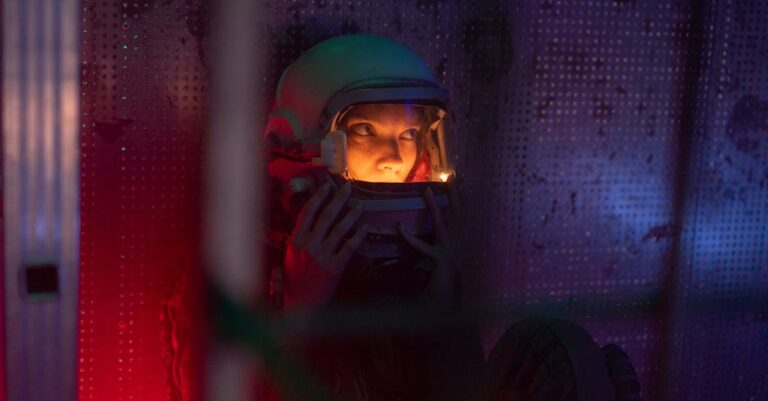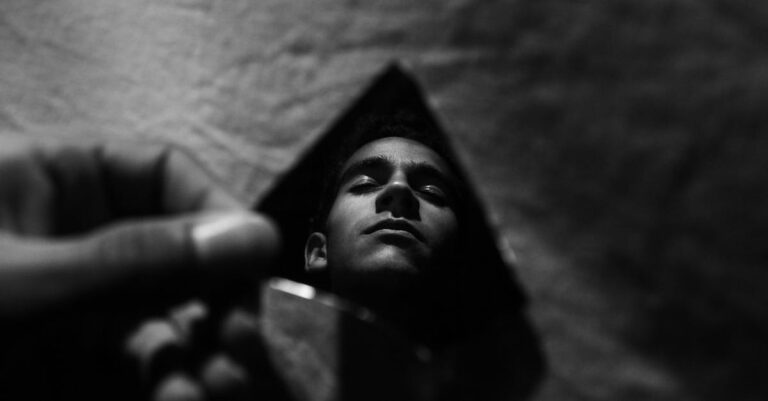
Dr. Elara Voss adjusted the neural scanner, its blue light flickering against the sterile white walls of her lab. The hum of machinery filled the air, a constant companion she’d grown accustomed to. Across from her, the subject—Kael—sat rigid in the chair, his eyes fixed on the ceiling. His pulse spiked on the monitor, a steady drumbeat of anxiety. She’d seen this before, the fear in a subject’s gaze when they realized they were being studied. But something about Kael was different.
“You’re not afraid of me,” she said, her voice steady despite the unease curling in her gut.
Kael turned his head slowly, pupils dilating. “I’m afraid of what I remember,” he replied. His voice was low, almost a whisper, but it carried the weight of something ancient.
Elara’s fingers tightened around the scanner’s edge. She’d designed this experiment to test memory retention under induced stress, but Kael’s responses were off. He spoke in fragments, as if pulling words from a distant place. When she asked about his childhood, he described a city that didn’t exist, its spires made of glass and light. When she pressed further, he laughed—a hollow sound that made her skin prickle.
“You think I’m lying,” he said, tilting his head. “But you already know the truth. You just don’t want to admit it.”
The words hung in the air, heavy and wrong. Elara’s breath hitched. She’d never seen a subject react like this. The data suggested Kael’s brain was functioning normally, but his answers defied logic. It was as if he’d absorbed information from somewhere else—something beyond human experience.
She spent the next week analyzing his neural patterns, cross-referencing them with existing databases. Nothing matched. Then, during a routine session, Kael began to speak in a language she didn’t recognize. The sound was melodic, almost musical, and it sent a shiver down her spine. When she asked him about it, he simply said, “It’s the way we talk where I’m from.”
Elara’s hands trembled as she typed notes into her journal. This wasn’t just an anomaly—it was a breakthrough. If Kael’s mind could access knowledge outside of human experience, what else was possible? She began to dream about the city he’d described, its towers glowing with an eerie light. In the dreams, she heard voices calling her name, but when she woke, the memory dissolved like smoke.
The more she investigated, the more her own memories began to shift. She found herself forgetting things—small details at first, like the color of her coffee mug or the sound of her neighbor’s cat. Then, larger gaps. She couldn’t remember the last time she’d eaten, or when she’d last seen her sister. The lab became a blur of white walls and sterile smells, and she started to question whether it was real.
One night, she woke to the sound of someone moving in her apartment. Her heart pounded as she crept to the door, hand trembling over the flashlight. The hallway was empty, but the air felt thick, charged with an energy she couldn’t explain. She stumbled back to her room, slamming the door shut. That night, she dreamed of Kael again, but this time he wasn’t in the lab. He was standing in a field of stars, his eyes glowing with an otherworldly light.
“You’re not supposed to remember,” he said, his voice echoing in her mind. “But you will. And when you do, everything will change.”
Elara woke with a scream, her sheets soaked with sweat. The next morning, she found a note on her desk, written in her own handwriting: “Don’t trust the lab. Don’t trust me.” The words felt foreign, as if someone else had written them.
She began to see patterns—small, insignificant things at first. A symbol etched into the wall of the lab, a melody she’d heard in her dreams, a name she couldn’t place. Each discovery felt like a piece of a puzzle she wasn’t meant to solve. The more she pushed, the more her reality frayed.
One afternoon, she walked into the lab to find Kael gone. The chair was empty, the monitors dark. A single sheet of paper lay on the desk, covered in her handwriting. She picked it up, her hands shaking. The message was clear: “The memories aren’t his. They’re yours.”
Panic surged through her. She ran to her apartment, searching for any sign of her past. Her shelves were bare, her books missing. The photos on the wall had been replaced with blank frames. She opened her laptop, only to find it filled with images of Kael—hundreds of them, in different settings, different times. Some looked like they’d been taken years ago.
In the chaos, she stumbled upon a hidden file labeled “Project Elysium.” The documents detailed an experiment she didn’t remember conducting, one that involved memory transference between subjects. The final entry was dated yesterday. “Subject 13 has become unstable. The boundaries are dissolving.”
Elara’s vision blurred as she read the words. She wasn’t just studying Kael—she was part of the experiment. The memories he’d described weren’t his; they were hers, fragmented and scattered across time. The lab, the city, the stars—they were all parts of a reality that had never existed.
She ran back to the lab, her breath ragged. The doors were locked, but she forced them open with a trembling hand. Inside, the walls pulsed with a faint glow, as if the building itself was alive. Kael stood in the center, his eyes now completely white.
“You finally understand,” he said, his voice a chorus of overlapping tones. “The line between us is gone. We are the same.”
Elara’s mind reeled. She reached for the scanner, but it was no longer there. The room shifted, the walls melting into a vast expanse of stars. She felt herself unraveling, her thoughts scattering like dust in the wind.
In the end, she didn’t know if she’d saved herself or become part of the experiment. But as the stars swirled around her, she realized one thing: reality was never what it seemed.


